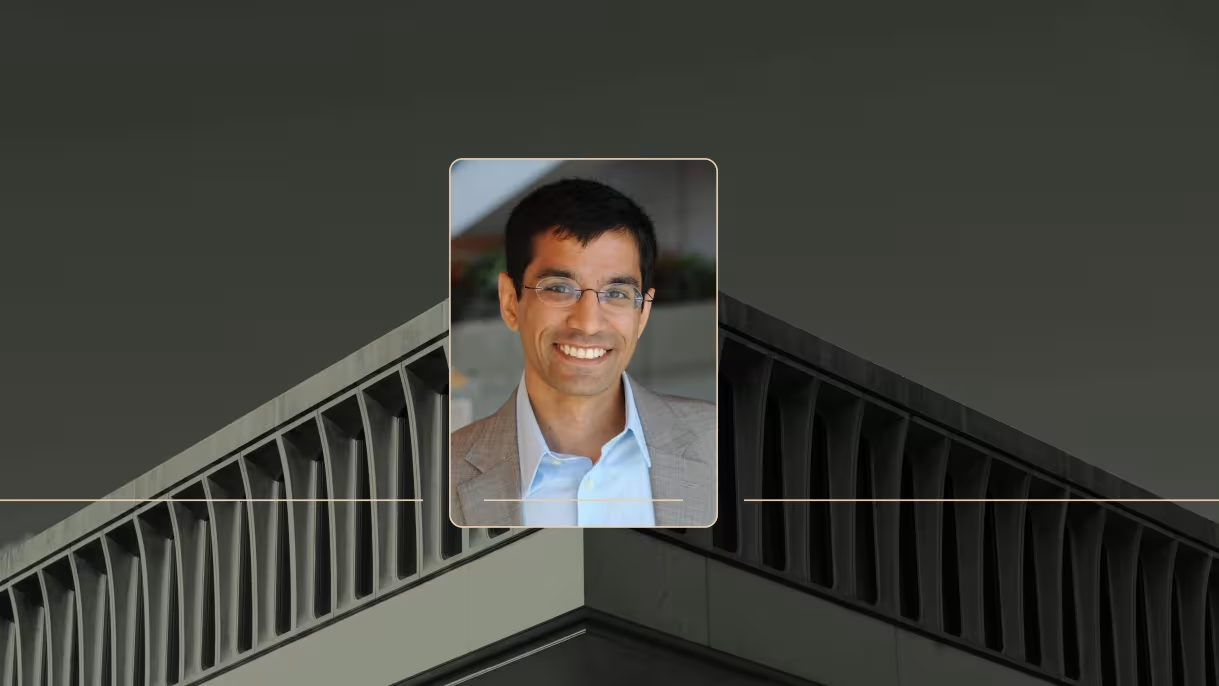

Fill in the Blanks with Anuj Shah
Anuj Shah came to Princeton this fall from the University of Chicago Booth School of Business. An associate professor of psychology and public affairs, Shah applies cognitive and social psychology to social issues with a lens on how poverty affects decision-making.
Shah is no stranger to Princeton University, where he completed his Ph.D. in psychology and a postdoctoral fellowship. Here’s more about him, in his own words:
My research explores… how we can use the psychology of decision-making as a lens into social issues such as poverty, crime, and conflict. For example, in one line of work I explore how resource scarcity (lacking money, lacking time) affects people’s attention and decision-making, with implications for how people budget and spend their resources. In other research, I study the benefits of programs that reduce automaticity and foster more deliberative decision-making. This includes interventions to reduce youth involvement in crime (and to increase school engagement), as well as an intervention to reduce police uses of force and unnecessary arrests. My research relies on both lab and field methods, and it usually starts with observing some puzzle or problem in the world and asking, “What does psychology have to say about this?”
Princeton SPIA is interesting to me… because my work is stronger when it draws on other social sciences and actively engages with policy. Here, we have a community of brilliant and engaged folks—students, staff, and faculty alike—who regularly do the same. And I think the School creates a lot of opportunities for engagement across disciplines and outside of the University.
I’m also excited to be in the classroom with our students. Before coming here, I taught at a business school for a little over a decade, and one thing I truly enjoyed was seeing how my students would take things from the classroom and put them into practice. I’m looking forward to seeing how that plays out here, since there’s an even better fit between my interests, my teaching, and our goals in the classroom. I’m pretty sure that however much I can offer the students, I will probably learn as much from them as well.
At Princeton SPIA, I hope to… get better at integrating approaches from other disciplines into my work. For example, most of my field research begins with a fair amount of qualitative and descriptive work. But as an experimental psychologist, this is something I have far less experience with than social scientists from other disciplines. I’m eager to explore how I can do this type of work from a psychological perspective. And as part of that, I hope to spend more time exploring a wider set of policy-relevant issues in the world.
If I weren’t in academia, I would… still want to be a teacher in some capacity. Otherwise, my backup plan was to become a wildly successful, impossibly famous, critically beloved writer.
The person most influential in my life has been… my parents, easily. They set the example that I turn to whenever I’m trying to figure things out. They taught me how to focus on what matters, how to work for it, and how the people in your life are more important than anything else.
On a Saturday night in Princeton, you’ll most likely find me at… either at home on our gray sofa or at home on our blue sofa, maybe introducing our daughter to old 8-bit Nintendo games.
My secret talent is… maximizing on the least important decisions in life (e.g., looking at all 8,000 rugs on a website to find the *objectively best* one).

